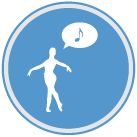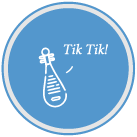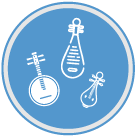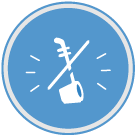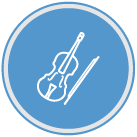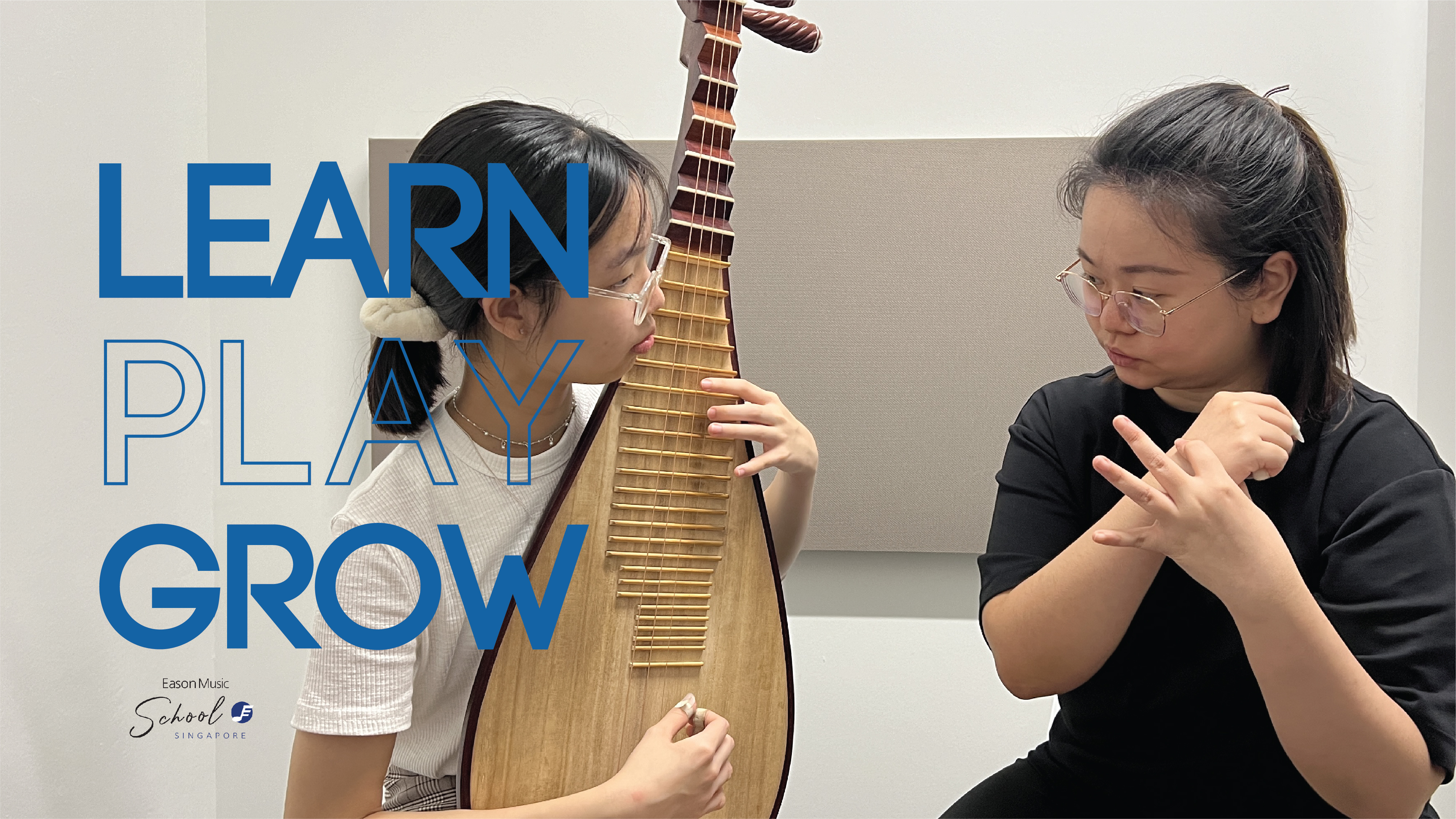
PIPA LESSONS SINGAPORE
Your Gateway to Authentic Pipa Classes in Singapore
Professional Pipa Lessons – Learn the Chinese Lute in Singapore The Pipa is a virtuosic pear-shaped lute known for its intricate and rapid fingering techniques. Our Pipa lessons are designed to simplify these complex techniques for beginners while providing deep artistic insight for advanced players.
First Lesson (Trial): $50 (Explore the instrument and basic techniques).
Standard Beginner Rate: $218 for 4 lessons.
Diploma Level: Advanced coaching available up to $370.60.
Friendly Pipa Lessons
Your gateway to unlocking its mesmerising melodies!
Iconic 2000-year-old instrument
Known for its pear-shaped body and expressive tone, Pipa (琵琶) is a four-string Chinese lute with a history of over 2,000 years.
Learn with the guidance of our expert instructors.
Learning the Pipa can be challenging, especially when navigating it on your own.
REASONS TO LEARN THE PIPA
OUR LESSON OPTIONS
Trial Lesson
A one-time trial Pipa lesson for newcomers, providing an opportunity to experience the instrument and teaching style before committing to regular classes.
4-Lesson Package
For beginners seeking an introductory experience without a long-term commitment.
(No instrument needed)
Weekly Lessons
For players interested in continuing long-term for examinations or leisure purposes.
Others
We also offer customised lessons such as Singapore DSA preparations, grading exam preparations, competition preparations and many more!
CRAFT YOUR JOURNEY
TENG Syllabus
Grade 1:
Jinkli Nona
卖报歌 Song of the Newsboy
男儿当自强 Man of Determination
一只小花狗 Little Spotted Puppy
Grade 2:
天 Sky
掀起你的盖头来 Lift Your Veil
紫竹调 Purple Bamboo Melody
西藏舞曲 Tibetan Dance
Grade 3:
天 Sky
旱天雷 Thunder In Drought
达坂城的姑娘 The Girl From Dabancheng
金蛇狂舞 Dance Of The Golden Snake
Grade 4:
欢乐的日子 Happy Days
迎春舞曲 Spring Dance
三六 Triple Falling Plum Blossoms
阳春白雪 White Snow In Bright Spring
Grade 5:
故乡的太阳 Sun Of Hometown
送我一枝玫瑰花 A Rose For Me
赶花会 Flower Festival
飞花点翠 Flowers Falling In The Green
Grade 6:
高山流水 Lofty Mountain And Flowing Water
彝族舞曲 Dance Of The Yi Tribe
天山之春 Spring Of Tian Mountain
寒鸦戏水 The Jackdaw Playing With Water
Grade 7:
中华六板 Moderately Ornamented Six Beats
新翻羽调绿腰 Palatial Dancers In Jade Robes
火把节之夜 The Night Of The Torch Festival
伊犁的早霞 The Morning Of Yili
Grade 8:
龙船 Dragon Boat
春雨 Spring Rain
诉 - 读唐诗《琵琶行》有感 Tang Poetry 'Pipa Xing'
虚籁 Sound Of Emptiness
NAFA Syllabus
Grade 1:
工农一家人 (片断)
孟姜女
银绞丝
小十面
老六板(加花)
扛起我们的枪
Grade 2:
旱天雷
茉莉花
老花六板
小月儿高
紫竹调
三六
Grade 3:
小猫钓鱼
迎春舞曲
马兰花开
绣罗裙
拉路驼
一枝梅
Grade 4:
大浪淘沙
欢乐的日子
飞花点翠
送我一枝玫瑰花
彩云追月
Grade 5:
彝族舞曲
昭君出塞
天山之春
赶花会
寒鸦戏水
Grade 6:
唱支山歌给党听
高山流水
歌舞引
火把节之夜
Grade 7:
虚籁
远方的客人请你留下
江南三月
新翻羽调绿腰
Grade 8:
渭水情
春雨
霸王卸甲
塞上曲
思春
Grade 9:
草原小姐妹
诉 - 读唐诗《琵琶行》有感
龙船
十面埋伏
Performance Diploma:
狼牙山五壮士
陈隋
海青拿天鹅
MEET OUT TEACHERS
At Eason Music, we understand your musical journey,
and that's why we've gathered a team of seasoned Pipa instructors dedicated to lighting your path.
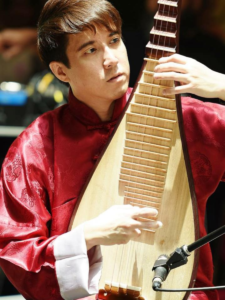
Cedric Chin
Cedric Chin started learning Pipa at the age of 10. In 1992, he participated in the Inaugural Chinese Music Competition and won the 1st Prize for the Intermediate Category. The following year, he clinched the 1st Prize again in the Intermediate Category of the National Music Competition Organised by National Arts Council.
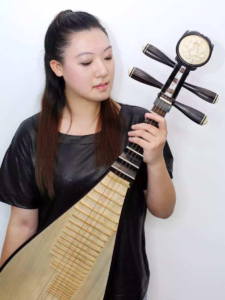
Wang Siyuan
Wang Siyuan was accepted into the Central Conservatory of Music Affiliated Middle School in 2008, where she studied under the tutelage of Professor Fan Wei. After her graduation, she moved to Singapore to continue her musical journey in the Nanyang Academy of Fine Arts (NAFA) in 2015, where she studied under SCO Pipa Principal Yu Jia.
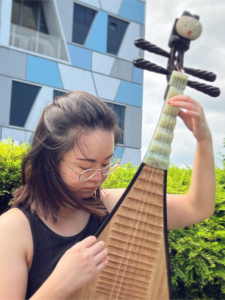
Ng Bi Yu
Ng Bi Yu's journey with the pipa began at the tender age of seven under the mentorship of Mdm Liu Yan at the Nanyang Academy of Fine Arts, The School of Young Talents. Her dedication and passion for music led her to achieve diplomas from both the Central Conservatory of Music and the NUS Centre For the Arts in 2009.
OUR STUDENTS
Book a Trial
Not sure if the instrument is for you?
Have a trial lesson with us to find out more about our instruments and get to know your teacher.
Contact Us
Have some questions for us?
Contact us below and we will be glad to answer them!
Frequently Asked Questions
WHY EASON MUSIC
LEARN MORE ABOUT THE PIPA


